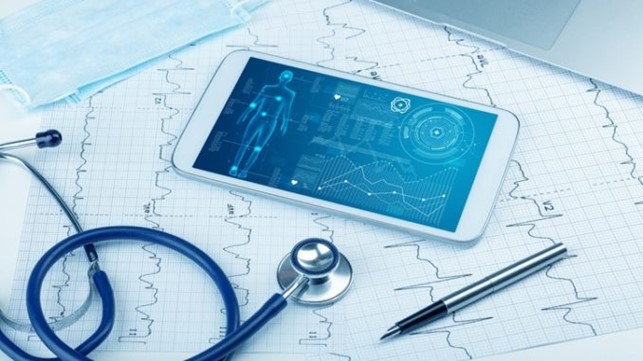
At the beginning…
I have seen, how nursing have changed thinking about the digitalisation. At the beginning of my career, in the early 2000s, we used papers and wrote down vital parameters, observations and treatment measurements.
Thankfully, We now use a special system for patient information in the intensive care units. The information from monitors, ventilators, and syringe pumps is directly recorded into this system. Doctors and nurses can easily follow trends and input data about important details like vital signs, ventilator settings, and medications. This increases patient safety. Plus, going paperless is good for the environment!
Discovering the World of Digital Innovations
My Experiences of the Digital Evolution in Health Care
The digitalisation of health care includes reforming ways of working and electronising services. The goal is to use digital services to provide better, user-friendly services to all users equally.
Digital health services have evolved rapidly in recent years. The COVID pandemic was a good push for digitalization and sped up the growth of digital health services. The pandemic seems to have considerably raised the demand and necessity for digital health services. I think that attitudes towards digital services have also become more positive -Today, people want a flexible and fast service.
For me, the digitalisation of healthcare is something I see every day in my work. In neonatal intensive care a lot of technical aids are used to support my work on a daily basis. One of the most important solutions is probably the patient information system in our department.The current patient information system has optimized the recording process, allowing for a more flexible use of time. On the other hand, we are also able to make effective use of the information accumulated in the medical record system, for example by creating diagrams of the patient’s vital signs. These diagrams in turn provide us with valuable information about the patient’s health status.
In Finland, we will face new challenges as our population ages. While digital health services are an absolute default for the new generations, we must also take into account those service users who do not have the skills or access to digital services. In the future, effective use of digitalisation in healthcare will require good change leadership, training of professionals and bold changes in practices.
The increased digitalisation of health care is expanding the job description of health care professionals and requires new skills. For example, nurses need to be able to use their organisation’s information systems and digital services safely. In the future, the use of innovative services will require adequate IT skills and the ability to use technological devices. Moving away from the old and embracing the new will require changes in people and their ways of working.
This change requires first and foremost the commitment and willingness of professionals to familiarise themselves with the new tools and services. The introduction of digital practices means a profound change in the organisation, in the way clients and professionals work and in their attitudes.
Digital applications help people take better care of themselves, reducing the need for traditional healthcare services. In the future, various health apps will empower individuals to take control of their well-being, reducing the need to seek assistance from or physically visit healthcare facilities.
I think we need to make healthcare services simpler to ensure that everyone can access health management equally. In my opinion digital services should be prioritized for those who can utilize them, allowing for efficient resource allocation. As we look ahead, we expect robots and automation to be used in healthcare. Scientific progress is important for finding and preventing serious diseases but the fast development makes it hard to predict future treatments
Digital Transformation: Shaping the Future of Life and Careers
I think that the digitalization will bring about significant changes in both life and work in the future. I believe the technology and the digitalization will help health care in future even more. It’s important to remember that healthcare still needs nurses and doctors, even though digital tools make the job ‘easier.’ These tools also encourage patients to monitor their health on their own, which aligns with the goals of Finland’s social and healthcare reform. Artificial intelligence, like robots, brings new opportunities to the fields of medicine and nursing.
Here are some potential impacts In my opinion:
- Remote Work: Digitalization will enable more flexible and remote work options. The use of digital tools and technologies will allow people to collaborate and perform tasks from different locations, changing the traditional concept of the workplace.
- Connectivity: Digitalization will further connect individuals. Improved communication and collaboration tools will facilitate interactions across borders, fostering a more interconnected world.
- Individual Experiences: Digital technologies will enable more personalized experiences in various aspects of life, from healthcare to entertainment.
- Data Privacy Challenges: As digitalization advances, concerns about data privacy and security will intensify.
- Education Transformation: Digital tools will revolutionize education, offering more accessible and personalized learning experiences.
- Healthcare Transformation: Digitalization will reshape health care delivery. Telemedicine, wearable devices, and health apps will become integral to managing health, offering more proactive and data-driven approaches to well-being.
These changes show how digitalization is transforming society, work, and daily life. The speed of technology advancement, societal adaptation, and effective governance will determine the extent of these changes. In the future, these changes are crucial in the digital landscape, offering new opportunities for development.
I thinki, it is important to remember that digitalization has its own set of challenges, like job displacement, concerns about privacy and security, and an increasing digital divide. Therefore, it’s crucial to weigh the benefits and drawbacks of technological progress carefully and plan for a fair and balanced future. So, it’s essential to think about both the good and bad sides of these technological advances and work towards a future that is fair and balanced.
Risks of Open Digital Society
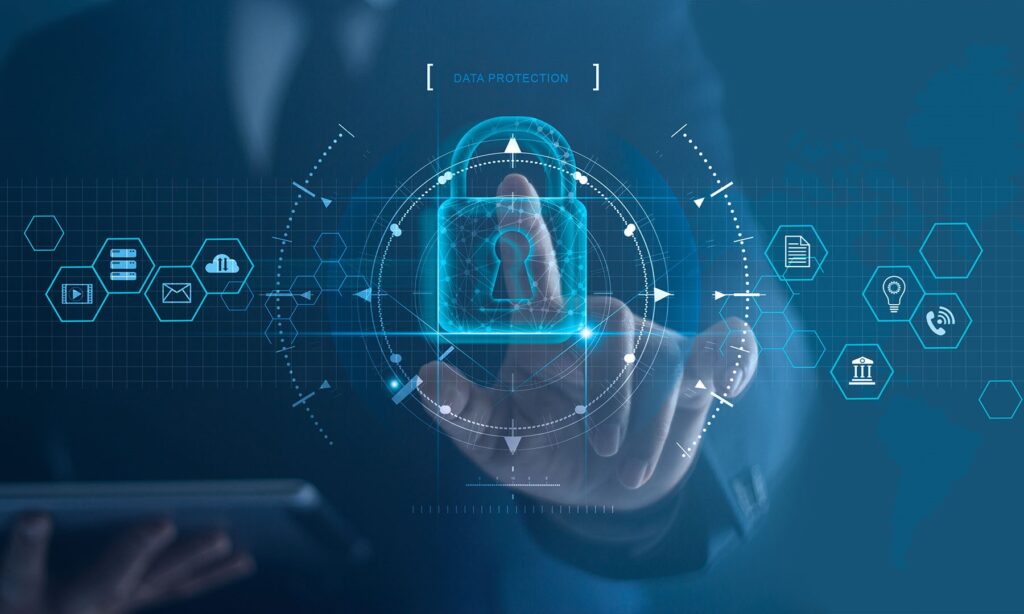
We are living in a digital society where changes in information affect every part of our lives. This includes our methods of communication and socialization, the way we work, learn, maintain our well-being, and engage in political and economic activities. Even though the digitalization opens us new ways of working and communicating, there are many risks and threats in the digitalized world.
In today’s digital world, using technology and the internet brings great opportunities but also some challenges. These challenges include things like keeping our information safe, protecting privacy, and making sure everyone has fair access to digital tools.
For me the major concern is data protection: Whenever you go online, there’s a big risk that your personal information may be exposed or compromised. Many people believe websites are safe without knowing that some can be very risky. But I think that there is a huge risk of losing important data while using open networks. To tackle these issues, we need strong security measures, good rules for handling information, and thoughtful decisions about new technologies.
The digitalization doesn’t always bring good things. It’s important to know about the dangers in a digital society that is open to everyone, for many important reasons.
Here are my thoughts:
Safety: Knowing the risks helps us create effective safety measures to protect society.
Privacy: Understanding how personal data is used lets people control their information and protect their privacy.
Decision-Making: Being aware of risks helps decision-makers make informed choices and create laws that address digital challenges.
Education and Awareness: Knowing about risks makes people more aware, helping them make better decisions and stay safe.
Technological Development: Understanding guides responsible tech development, considering ethics and societal impact.
Digital Inclusion: Recognizing risks helps create strategies for including everyone in the benefits of the digital world.
Overall, knowing and understanding these risks is essential for sustainable and responsible digital progress.
In the end…
Overall, knowing and understanding these risks is essential for sustainable and responsible digital progress. It’s important to keep up to date security for example a password must change at certain intervals and not keep the same password on all platforms. In James Lyne’s video, he emphasizes that applications using Global Positioning System (GPS) can track our location. I think that people have to themselves take care of privacy. It’s important also to teach children to maintain security and privacy.
General Data Protection Regulation (GDPR)
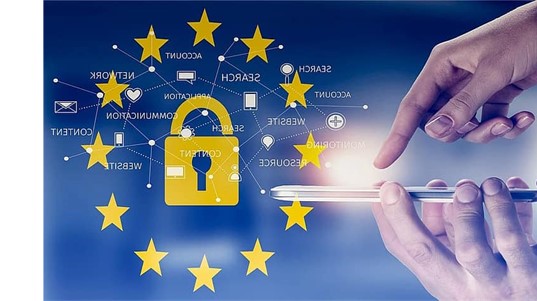
I studied the Eu’s data privacy law or General Data Protection Regulation (GDPR) in one course of digital health. It promote individuals’ control and rights over their personal data and to simplify the regulatory environment for international business. This law offers protection: I have a right sort out how my personal data is used. At work, collect only the information that is needed and necessary. GDPR also requires that hospitals have their own Data Protection Officer.
There are risks in the digital society that we need to identify. One important one is data protection, in particular the General Data Protection Regulation (GDPR). GDPR has improved privacy protection, which is a good thing. It means stronger privacy safeguards and better security online. People now have more control over their own data.
On the other hand, GDPR also brings challenges. Compliance can make business processes more complex and create financial burdens. For some, it may also hamper innovation by limiting the use of data, especially in new technologies such as artificial intelligence. Striking a balance between strong data protection and innovation is a challenging task in the digital world.
Personal data and its processing is a key component of an organization’s operations no matter how small or big they are. Here are several reasons why data protection is important, in my opinion:
Positive impacts of GDPR:
- Privacy Protection: GDPR has strengthened individuals’ rights and increased data protection, enhancing privacy in the digital environment.
- Cybersecurity: The regulation requires organizations to reinforce cybersecurity practices, potentially leading to improved security and reduced risks of data breaches.
- Informed Consent: GDPR emphasizes the importance of informed consent, ensuring that people are aware of how their data is collected and used.
Negative impacts of GDPR:
- Bureaucracy: Compliance may increase the administrative burden and bureaucracy for organizations, particularly smaller businesses.
- Costs: Adhering to GDPR may incur additional costs for businesses that need to invest in data protection practices.
- Innovation Constraints: Some argue that GDPR may impose constraints on innovation, especially in cases where personal data is required for developing AI-based services.
It is essential to balance privacy protection and cybersecurity with the innovations enabled by business and technology. In your personal and professional life, GDPR can bring added security and awareness about the processing of your personal data, but at the same time, it may lead to changes in how organizations handle information.
More information: https://gdpr.eu/what-is-gdpr/
Working with ChatGPT
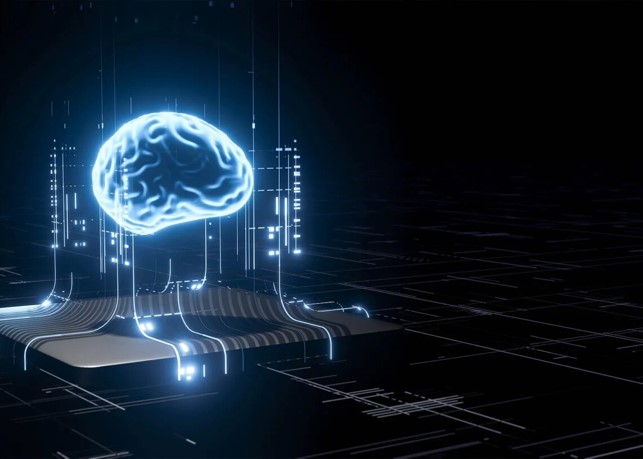
I asked chtaGPT a couple of questions. My task was reflect on whether I got the right answer and what problems there were with the answers. When using ChatGPT, i noticed there were a few potential problems:
Lack of understanding: sometimes ChatGPT may misunderstand questions or requests, resulting in incorrect or inaccurate answers.
Repetitiveness: ChatGPT may produce repetitive or similar responses, which may be undesirable in terms of versatility.
Sensitivity: ChatGPT is not aware of ethical or political considerations and may produce content that is not suitable for everyone or may even be offensive.
Timeliness of information: the ChatGPT is not aware of events or updates after it has been trained and therefore cannot provide the latest information.
I think, it is important to be aware of these challenges and use judgement when interpreting responses. You can use ChatGPT for language assistance, writing assistance, and even for learning new things. But if possible, it is important also check information from other reliable sources to ensure accuracy. ChatGPT doesn’t have real-time information, so it might not provide the most up-to-date details.
Always use your judgment and verify information for important decisions!
Self-evaluation
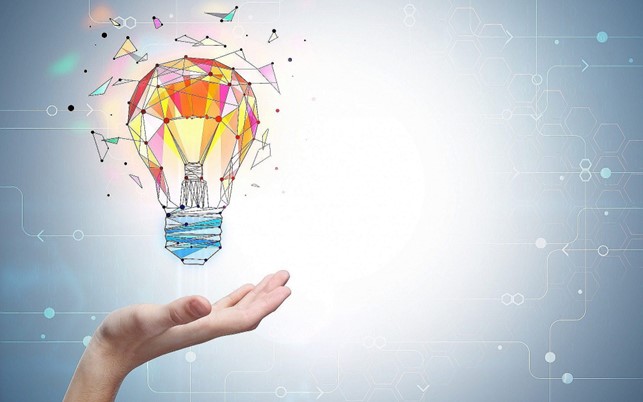
I started my digital health studies last year, so the subject area was quite familiar. The biggest challenge is my English. I haven’t written English texts for long time and that’s why it takes time. I haven’t done blogs and used WordPress before, so it was interesting to learn blogging skills.
Orientation materials were very interesting to watch. Materials open my eyes more, how big data affects us and how the world changes with the digitalization. The course material provided good instructions for building a blog. By watching the videos of course material and getting knowledgeable with other students writings, I learned that digitalization gives a lot of opportunities to produce services quickly and easily.
I took a moment to reflect all the changes that has happened in my everyday life and working field during the last years. Digitalisation has truly changed the world!
It is good to remember that digitalization also involves risks, and it is important to protect your own data protection.
Orientation materials were very interesting to watch. Materials open my eyes more, how big data affects us and how the world changes with the digitalization.
I Commented on the Pages: